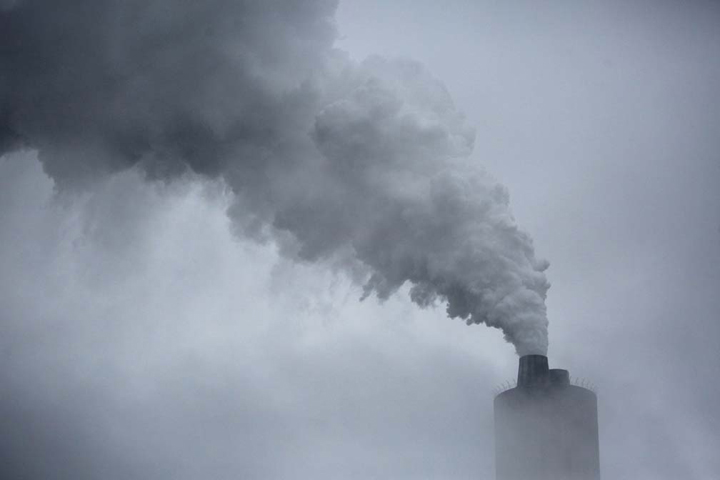
THE draft energy policy crafted by the Manila-based Asian Development Bank (ADB) will not allow its developing member-countries (DMCs), including the Philippines, to meet their commitments set under the Paris declaration, according to civil society organizations (CSOs).
In a virtual briefing on Thursday, CSOs lamented that given the contents of ADB’s draft energy policy, DMCs will not be able to work toward the 1.5 degree global warming limit set under the Paris declaration.
This, despite the release of an Intergovernmental Panel on Climate Change (IPCC) report which declared a “code red for humanity” and issued stern warnings against the continued use of coal, oil and gas.
“A 1.5°C-aligned transition is an imperative for climate-vulnerable Asia, and the IPCC made clear what this looks like: a swift end to our dependence on all fossil fuels, not just coal. We also hope the ADB clarifies its coal buy-out scheme in the Philippines and neighboring countries, and how this fits—or contradicts—its no coal policy,” Avril De Torres from Center for Energy, Ecology and Development (CEED) Philippines, said.
“As nations that stand to lose the most if we fail to bring global temperature rise back down to no more than 1.5°C by the end of this century, we cannot allow the ADB Board to approve a Working Paper that is nowhere near the ambition needed to address the climate crisis in this most critical decade,” she added.
Rayyan Hassan, executive director of the NGO Forum on ADB, also said the draft energy policy currently contained in the Working Paper of the ADB’s Energy Policy Review contained loopholes, including the ADB’s plans for its exit from financing coal projects.
The working paper, Hassan said, did not incorporate the urgency of the IPCC AR6 report, and did not also provide a time-bound criteria on ending support for further expansion of fossil fuel infrastructure, most especially for new gas-dependent operations.
Hasan Mehedi of the Coastal Livelihood and Environmental Action Network lamented that ADB did not also set any deadlines for ending its fossil fuel investments. He said ADB must set a deadline for fossil fuel investments and lead the region to shift to 100 percent use of renewables.
The CSOs, Hassan said, expected that ADB will immediately halt its financing for fossil fuels and help DMCs shift toward renewable energy especially through solar and wind technologies.
With these loopholes, Hassan said: “There is nothing stopping the ADB from supporting investments in coal via financial intermediary lending, or in transport and connectivity infrastructure that will enable further coal trade and extraction.”
Apart from this, other CSOs such as Yobel Putra of the Global Alliance for Incinerator Alternatives-Asia Pacific said there are better alternatives to waste-to-energy projects, which is done through incineration and leads to air pollution.
Putra said supporting waste-to-energy projects will only lead to global warming and toxic pollutants which would later affect the world’s food chain far longer than people would want to believe.
“With its heavy reliance on burning fossil-based plastic, investing in incineration is clearly not Paris-aligned. It is more carbon intensive than coal-fired power plants. It also hinders measures on waste reduction, reuse, recycling, and composting,” Putra said.
The CSOs also lamented that the Working Paper was “rushed” to the Board of Directors for approval with only a two week window for public review and input which happened between August 16 and 31.
This meant that non-English speaking communities with little or no access to the Internet, who are significantly affected by ADB’s projects, are excluded from opportunities to give any meaningful comments on the draft.
Last year, ADB announced that it will revise its energy policy to help its DMCs reduce their dependence on coal.
ADB’s former Energy Sector Group Chief Yongping Zhai said part of the reasons for the revision of ADB’s energy policy are the recent findings of the Independent Evaluation Department (IED) of the bank’s energy investments.
The IED said ADB must clarify its formal institutional position on the financing and use of coal energy resources, even if it has refrained from investing in coal-fired power plants since 2013.
International policy group Institute for Climate and Sustainable Cities (ICSC) Executive Director Red Constantino agreed that, “phasing out coal will be a complex and enduring process.” But, he said, this may have been avoided, if ADB had only listened to the counsel of civil society organizations to veer away from coal when the 2009 energy policy of ADB was being crafted.
Constantino added that another problem is cropping up with fossil fuels. In November 2020, Reuters reported that ADB is one of the multilateral institutions that did not make the pledge to phase out fossil fuel investments.

